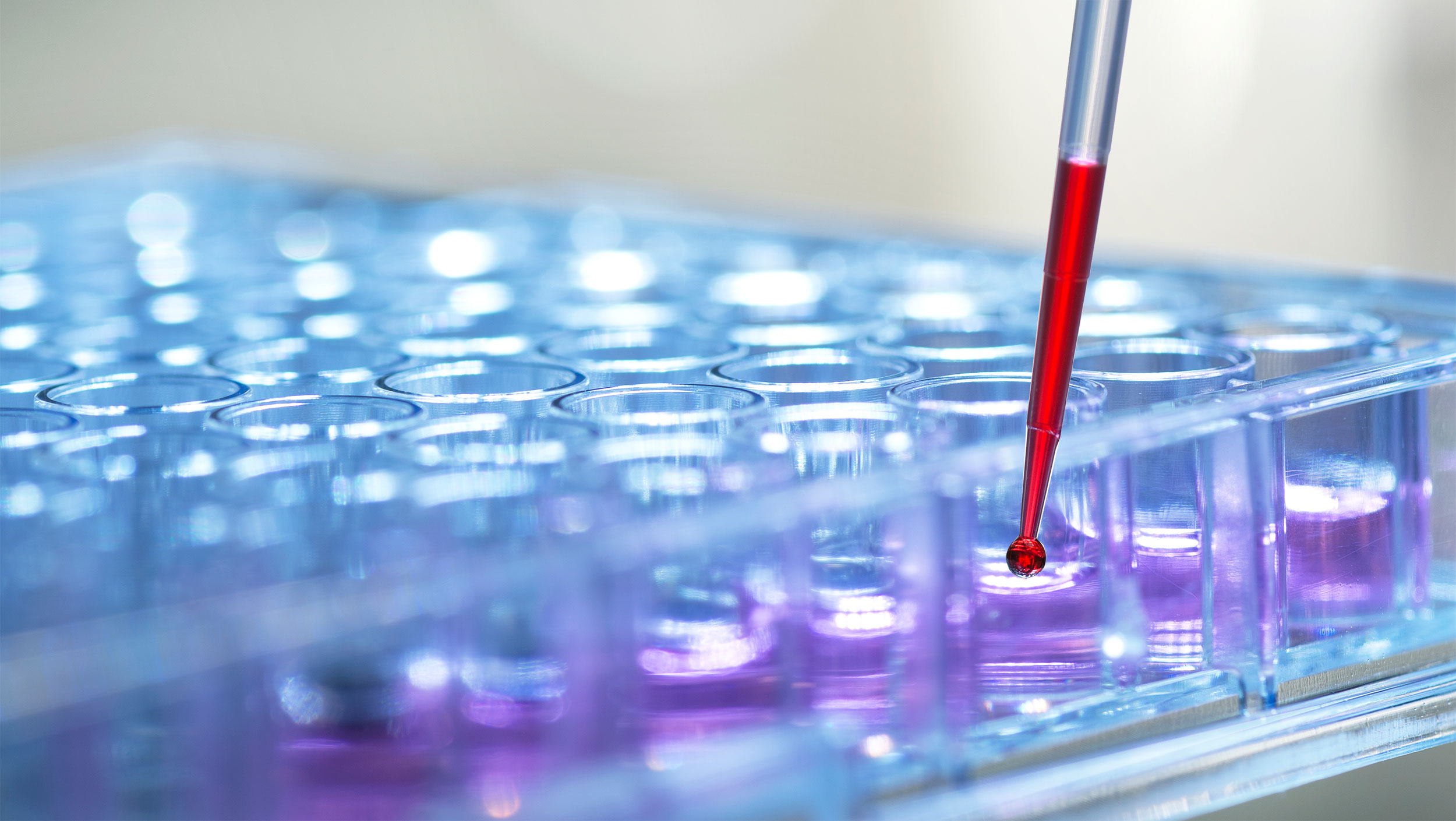Web special of the cover story of Fraunhofer magazine 2.2018
Translational medicine
Testing new drugs in clinics, searching for specific biomarkers, developing sentient prostheses, brainstorming concepts for secure data management – health-related research certainly comes in many guises. The research efforts of Fraunhofer Institutes address four major areas of medical science – drugs, diagnostics, devices and data, or 4D for short. The authors visited four research teams on the cutting edge of translational medicine, where fundamental research is ushered out of the lab and into the world.
Health research projects and research institutions
New Fraunhofer Institute for Translational Medicine and Pharmacology ITMP
In 2012, a Fraunhofer project group for Translational Medicine and Pharmacology TMP was established at the Fraunhofer Institute for Molecular Biology and Applied Ecology IME in association with the LOEWE program (Hessian Initiative for the Development of Scientific-Economic Excellence). The aim of this group was to expand the Fraunhofer-Gesellschaft’s portfolio in the field of drug research and development. Over the last number of years, the former Fraunhofer project group TMP has achieved international recognition in the area of immune disorders due to its extensive expertise in areas such as drug identification, pharmaceutical technology, highly differentiated and indication-specific pharmacological models, and clinical research. As a result of these advances, the TMP branch of Fraunhofer IME is set to become an independent institute with headquarters in Frankfurt am Main and locations in Hamburg and Göttingen as of January 1, 2021.
RIBOLUTION Biomarker Center
The RIBOLUTION Biomarker Center was set up at the Fraunhofer Institute for Cell Therapy and Immunology IZI in Leipzig as part of a close cooperation involving five Fraunhofer institutes and several universities. At the Center, novel biomarkers are identified based on ribonucleic acids and developed through to clinical “proof of concept” with the aid of selected patient cohorts. At present, activities are primarily focused on development programs in the areas of prostate cancer, chronic obstructive pulmonary disease (COPD) and infectious diseases.
Medical Data Space
The medical community collects enormous volumes of data in research labs, in clinics and at health insurance companies. The Fraunhofer-Gesellschaft is developing the Medical Data Space to tap the potential of this precious data pool. It is a place where sensitive medical data can be securely connected.
The Medical Data Space builds on the Industrial Data Space developed by Fraunhofer in a joint effort with industry and government. This space enables industrial enterprises to securely exchange data, while ensuring they retain control over their data.
Patients’ privacy is the top priority for the Medical Data Space’s designers. As in the Industrial Data Space, data remain in the owners’ possession rather being stored data centrally in a cloud. This provides added security.
Algorithms for liver surgery – performing operations more safely worldwide
Four complex, interwoven vascular systems pass through the liver. Surgically removing tumors is therefore often a great challenge. The Fraunhofer Institute for Medical Image Computing MEVIS has developed algorithms that analyze patients‘ imaging data and calculate surgical risks. This makes liver cancer surgery safer and easier to plan..
Fraunhofer Group for Life Sciences
The Fraunhofer Group for Life Sciences bundles the biological, biomedical, pharmacological, toxicological and food technology competencies of the Fraunhofer-Gesellschaft.
